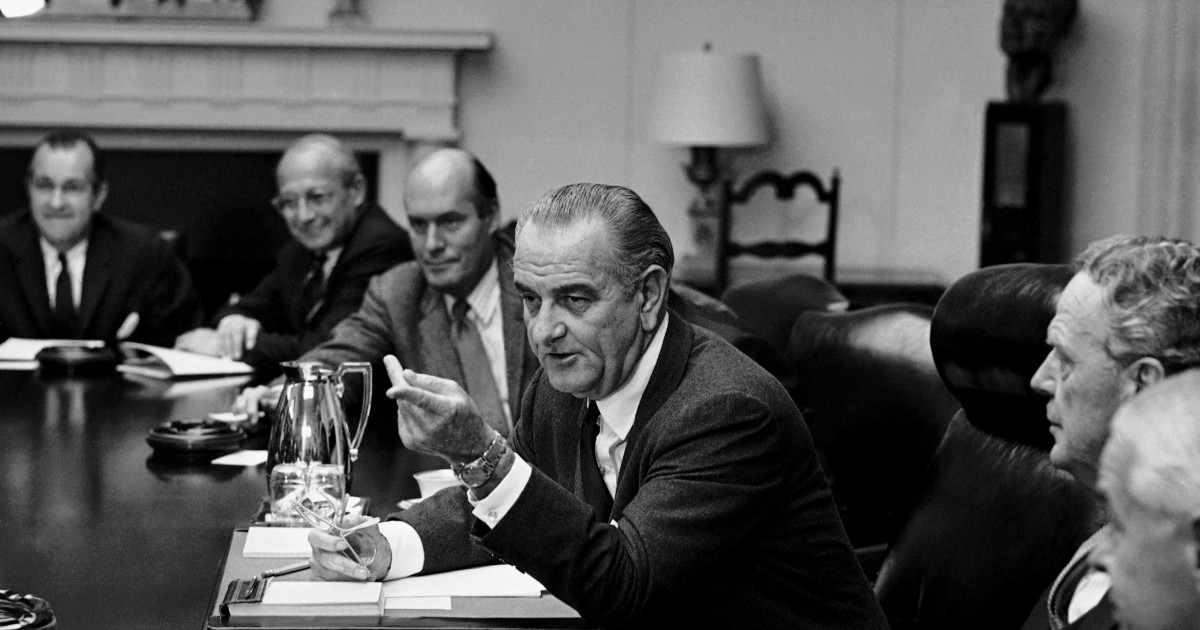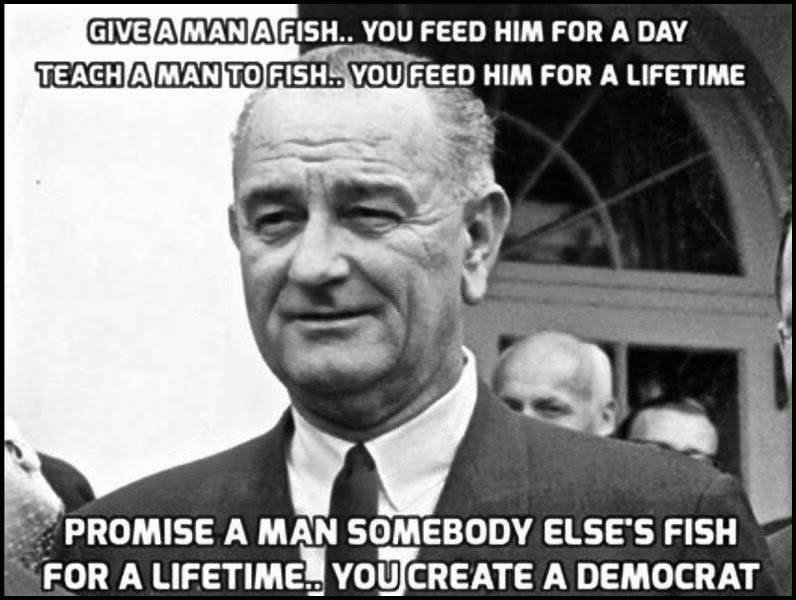Definitely some truth to that. It’s also a question of what law enforcement chooses to look for and who they look at.Based on my own experience, not hard to see drug sellers and abusers in certain neighborhoods; in other, not hard to see drug abusers but not drug sellers. My next door neighbor[white] turned out to be a major drug trafficker, I had no clue, he went to work every day and didn't show a lifestyle any different than the rest of the neighborhood. It was rather shocking when SWAT and the FBI showed up to arrest him.
You are using an out of date browser. It may not display this or other websites correctly.
You should upgrade or use an alternative browser.
You should upgrade or use an alternative browser.
A Judge Asked Harvard to Find Out Why So Many Black People Were In Prison
- Thread starter hubman
- Start date
Hammerdrill
Well-known member
ProV told us that these riots may be necessary to improve things. Is this an improvement for blacks?
https://www.powerlineblog.com/archives/2020/09/seeing-the-minneapolis-effect.php
"My recent research quantifies the size of this summer’s Minneapolis Effect, estimating that reduced proactive policing resulted in about 710 more homicides and 2,800 more shootings in June and July alone. The victims of these crimes are disproportionately African-American and Hispanic, often living in disadvantaged and low-income neighborhoods."
https://www.powerlineblog.com/archives/2020/09/seeing-the-minneapolis-effect.php
"My recent research quantifies the size of this summer’s Minneapolis Effect, estimating that reduced proactive policing resulted in about 710 more homicides and 2,800 more shootings in June and July alone. The victims of these crimes are disproportionately African-American and Hispanic, often living in disadvantaged and low-income neighborhoods."
irish_buffalo
Well-known member
I do not believe so based off of what I know. There is more to this though. Using that meme as evidence is a tad misleading.Do those differences justify a 26 year sentence discrepancy,,,
SWMCinci
Well-known member
The two variables are likely related.
Overall, I think people do discount the impacts of poverty outcomes, especially in the US where we have a long history of the "pull yourself up your bootstraps" narrative going back centuries now. Studies have shown that simply being poor leads to decreases, which leads to more poor choices, which leads to more poverty, which leads...rinse and repeat and you have generational, concentrated poverty. Sometimes it is hard to separate out socio-economic and race variables in terms of outcomes because the two correlate so closely in many instances.
I don't think people necessarily discount poverty, but it is simply an obstacle like any other. The fact is that probably every person in America can cite at least 1 individual that "escaped" poverty through education, hard work, athleticism, talent, or blind luck illustrates the point. Everyone knows someone or knows the story of someone that has done it, not in the ancient past, not as some potential, but in the present and it happens often.
The facts are that there is no condition (other than laziness) that actually condemns any individual to some predestined path of poverty. While there are never guarantees, there is no condition that is too far gone to recover from - it may be harder for some than others, but the opportunity is always there.
I don't think people necessarily discount poverty, but it is simply an obstacle like any other. The fact is that probably every person in America can cite at least 1 individual that "escaped" poverty through education, hard work, athleticism, talent, or blind luck illustrates the point. Everyone knows someone or knows the story of someone that has done it, not in the ancient past, not as some potential, but in the present and it happens often.
The facts are that there is no condition (other than laziness) that actually condemns any individual to some predestined path of poverty. While there are never guarantees, there is no condition that is too far gone to recover from - it may be harder for some than others, but the opportunity is always there.
One-offs make great anecdotes/talking points, but that doesn't get us very far in a country of 330 million plus people.
I don't have any great palatable answers for how you solve the problem of concentrated, generational poverty. That having been said, simply saying people are poor as a rule because they are lazy is ignorant/disingenuous.
SWMCinci
Well-known member
One-offs make great anecdotes/talking points, but that doesn't get us very far in a country of 330 million plus people.
I don't have any great palatable answers for how you solve the problem of concentrated, generational poverty. That having been said, simply saying people are poor as a rule because they are lazy is ignorant/disingenuous.
I didn't say that, read it again.
What I said was that laziness was the ONLY condition that condemns an individual to poverty - everything else can be, and has been, overcome.
my2sense
Well-known member
I don't have any great palatable answers for how you solve the problem of concentrated, generational poverty.
For me it was hard work, obeying the law, making good choices, resisting peer pressures and using self-control. This was after I accepted that ultimately I was responsible for my life.
I didn't say that, read it again.
What I said was that laziness was the ONLY condition that condemns an individual to poverty - everything else can be, and has been, overcome.
I didn't say you said that, but that's the narrative that gets pushed a lot.
Also, there's a difference between can and likelihood of overcoming adverse conditions. In a country of 330 million people, the law of very large numbers means just about anything is possible on the individual level. You don't make public policy, however, based on rare, unlikely one-offs.
For me it was hard work, obeying the law, making good choices, resisting peer pressures and using self-control. This was after I accepted that ultimately I was responsible for my life.
Of course. But the data tells us that's not likely for a large number of people. I spent a lot of time working in the hospitality/service industry in college and just after college. You won't see harder working people than the housekeepers, dishwashers, etc. at the various hotels and restaurants I worked at.
However, for most of them, no matter how hard they work or how many hours they put in, they are unlikely to ever rise above lower class economically, especially if they came from a poor background. Being poor, on the aggregate, comes with disadvantages and leads to limited opportunities and poor choices.
my2sense
Well-known member
Being poor, on the aggregate, comes with disadvantages and leads to limited opportunities and poor choices.
Six of us grew up on the same block. Same demographics and income. Three went to college (two graduated), same three later joined the service, while the other three did not take advantage of similar opportunities. Two are dead and one in prison.
Life is about your choices, not your chances.
Yappi
Go Buckeyes
This is a serious question, why were African Americans abusing crack cocaine and white people abusing powder cocaine? Why was there a cultural difference between the drug of choice? What was the advantage of one over the other? Was there something nefarious involved in the distribution?In 2010, Congress passed the Fair Sentencing Act (FSA), which reduced the sentencing disparity between offenses for crack and powder cocaine from 100:1 to 18:1. The scientifically unjustifiable 100:1 ratio meant that people faced longer sentences for offenses involving crack cocaine than for offenses involving the same amount of powder cocaine – two forms of the same drug. Most disturbingly, because the majority of people arrested for crack offenses are African American, the 100:1 ratio resulted in vast racial disparities in the average length of sentences for comparable offenses. On average, under the 100:1 regime, African Americans served virtually as much time in prison for non-violent drug offenses as whites did for violent offenses.
I've heard about this difference in drug sentences for a long time but never understood why there was apparently a distinct line between the two cultures preferred drug.
I enjoy wrestling
Well-known member
Cocaine was expensive and crack was less expensive. I think crack had the tendency to be much more addictive. Plus crack was much more profitable in the urban areas. Crack was so addictive it ranked higher on the enforcement scales Maybe? Whites prefer alcohol vrs Marijuana for blacks. Lot's of white crime has a base in alcohol. ImoThis is a serious question, why were African Americans abusing crack cocaine and white people abusing powder cocaine? Why was there a cultural difference between the drug of choice? What was the advantage of one over the other? Was there something nefarious involved in the distribution?
I've heard about this difference in drug sentences for a long time but never understood why there was apparently a distinct line between the two cultures preferred drug.
Hammerdrill
Well-known member
Article from National Review, says what I have been saying

 www.nationalreview.com
www.nationalreview.com

Systemic Racism? Make Them Prove It. | National Review
Progressives say racism is everywhere in the criminal-justice system, but they don’t provide many specifics.
cabezadecaballo
Well-known member
Article from National Review, says what I have been saying

Systemic Racism? Make Them Prove It. | National Review
Progressives say racism is everywhere in the criminal-justice system, but they don’t provide many specifics.www.nationalreview.com
Best lines -
"That is to say: The “institutional racism” prattle would melt if it were ever subjected to the enlightened rationalism that is supposed to be the university’s reason for being. But that is Western culture, and out leaders don’t do Western culture anymore."
Heard a good line this past week, "between the stimulus and action from it is a moment of time known as choice".Six of us grew up on the same block. Same demographics and income. Three went to college (two graduated), same three later joined the service, while the other three did not take advantage of similar opportunities. Two are dead and one in prison.
Life is about your choices, not your chances.
I enjoy wrestling
Well-known member
The gig is up for College degrees. The amount paid in doesn't equate to a good investment for the majority. Technical training and Community Colleges will now be center stage. Learning from home is cheap. 30 years of abuse and the educational community is about ready to enter a period of radical change.
cabezadecaballo
Well-known member
Hopefully change for greater benefit of the students.The gig is up for College degrees. The amount paid in doesn't equate to a good investment for the majority. Technical training and Community Colleges will now be center stage. Learning from home is cheap. 30 years of abuse and the educational community is about ready to enter a period of radical change.
I agree with most of your point, but that college degree will open the door to great paying government jobs that you must have a degree to apply for the position. Its these jobs that are keeping college degrees relevant.The gig is up for College degrees. The amount paid in doesn't equate to a good investment for the majority. Technical training and Community Colleges will now be center stage. Learning from home is cheap. 30 years of abuse and the educational community is about ready to enter a period of radical change.
The crazy part is for the affirmative action hires, we likely gave them a free education based on need as well.
I enjoy wrestling
Well-known member
And there is another problem.I agree with most of your point, but that college degree will open the door to great paying government jobs that you must have a degree to apply for the position. Its these jobs that are keeping college degrees relevant.
The crazy part is for the affirmative action hires, we likely gave them a free education based on need as well.
Hammerdrill
Well-known member
I enjoy wrestling
Well-known member
Bingo and Lyndon B Johnson started the whole process.
cabezadecaballo
Well-known member
That LBJ was counting on 200 years of election booth enslavement of blacks. How ironic that China was able to purchase the NBA LBJ.Bingo and Lyndon B Johnson started the whole process.
I enjoy wrestling
Well-known member
Hmm wowThat LBJ was counting on 200 years of election booth enslavement of blacks. How ironic that China was able to purchase the NBA LBJ.
I enjoy wrestling
Well-known member
It's hard to find any of his particular viewpoints on the web. Me thinks they disappeared.That LBJ was counting on 200 years of election booth enslavement of blacks. How ironic that China was able to purchase the NBA LBJ.
I enjoy wrestling
Well-known member
Reader beware strong language.

 www.msnbc.com
www.msnbc.com

Lyndon Johnson was a civil rights hero. But also a racist.
Lyndon Johnson was a racist. He was also the greatest champion of racial equality to occupy the White House since Lincoln.
cabezadecaballo
Well-known member
It's hard to find any of his particular viewpoints on the web. Me thinks they disappeared.
Disappeared, huh ?
Abracadabra, Shazaam, BOOM.....



Except it was Hey, hey, LBJ. How many kids did you kill today?LBJ,LBJ how many kids did you kill today? One of my fav's from the 60's.
I enjoy wrestling
Well-known member
This is the Democratic partyDisappeared, huh ?
Abracadabra, Shazaam, BOOM.....





